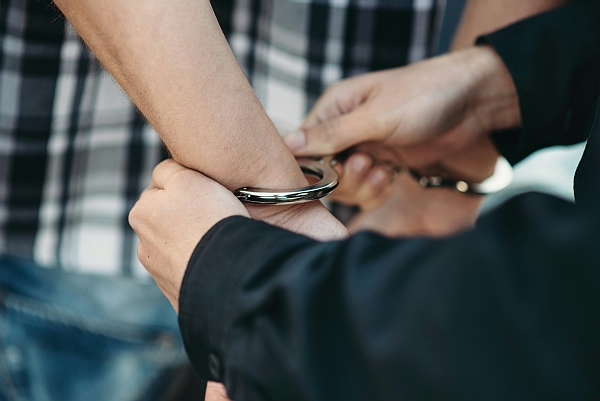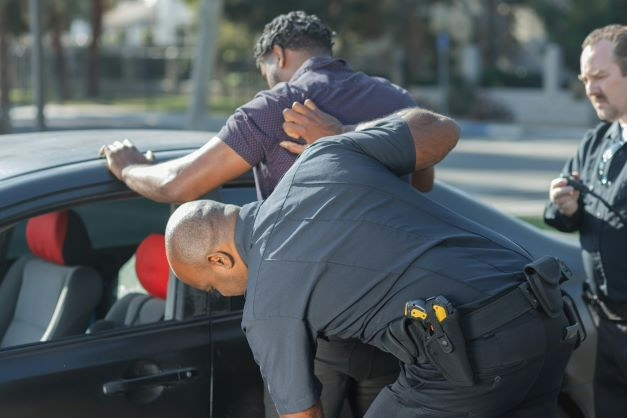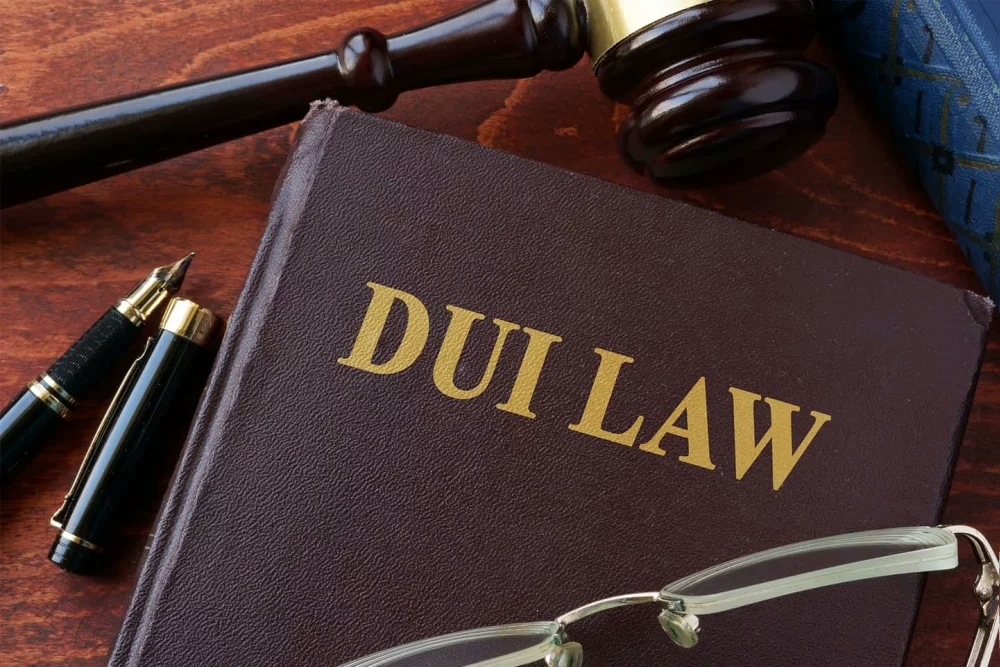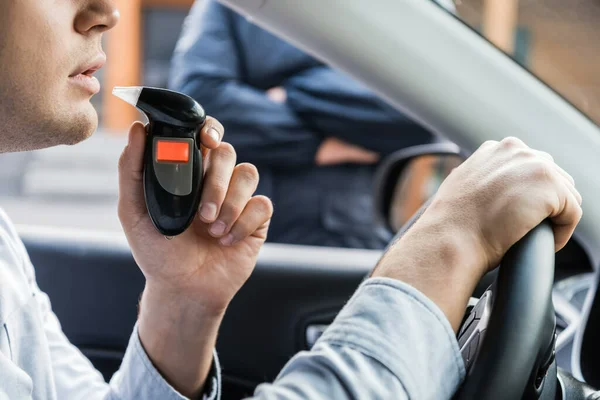What is the best plea deal for DUI in Marietta?
That sinking feeling hits you the moment you see those flashing lights behind you after what seemed like an ordinary evening out. Maybe you had dinner with colleagues, a glass of wine at a friend’s house, or just one beer while watching the game – but now you’re facing a DUI charge in Marietta, and your mind is racing with questions about what happens next. The fear of losing your license, your job, or even your freedom can feel overwhelming when you’re staring down Georgia’s criminal justice system.
Take a deep breath – this moment doesn’t have to define your future, and you have more options than you might think.
You’re probably wondering if there’s a way to minimize the damage to your life, and that’s exactly where understanding DUI plea deals becomes your lifeline. These negotiated agreements can often mean the difference between devastating consequences and a manageable outcome that lets you move forward. The truth is, the first offer prosecutors make is rarely their best offer, and knowing how to navigate these waters can protect everything you’ve worked for.
At The Freedom Lawyers, we’ve guided hundreds of Marietta residents through this exact situation. We know the local court system, the prosecutors you’ll be dealing with, and most importantly, we understand that behind every DUI case is a real person with a family, career, and future worth protecting. Let’s walk through everything you need to know about securing the best possible plea deal for your specific situation.
Understanding DUI Plea Deals in Georgia
A DUI plea bargain is essentially a negotiated agreement between your defense attorney and the prosecutor where you agree to plead guilty or no contest to a lesser charge or accept reduced penalties. It’s not about admitting you’re guilty of everything they’re accusing you of – it’s about finding a resolution that protects your interests while acknowledging the realities of your situation.
In Marietta’s court system, prosecutors often offer plea deals because it saves time and resources for everyone involved. They get a conviction, you get reduced consequences, and the court system keeps moving. However, this doesn’t mean you should jump at the first offer they make. The initial plea offer is rarely the best deal you can get, and that’s where having experienced legal representation makes all the difference.
Understanding your constitutional rights during plea negotiations is crucial. You have the right to reject any plea offer and take your case to trial. You also have the right to have your attorney present during all negotiations. Remember, once you accept a plea deal, you’re typically giving up your right to appeal the conviction, so it’s important to make sure the deal truly serves your best interests.

Common Types of DUI Plea Deals in Marietta Courts
Reduced to Reckless Driving
The most often result of reduced DUI plea deals is getting your charge reduced to reckless driving. This is a significant win because reckless driving doesn’t carry the same stigma or mandatory punishment as a DUI conviction. You won’t face automatic license suspension, mandatory DUI classes, or the requirement to install an ignition interlock device in some cases. However, this type of plea deal is typically only available when there are serious weaknesses in the prosecution’s case against you, or you have an experienced and aggressive DUI defense. We specialize in determining the weaknesses in the State’s case. Contact us for a Free Consultation on your DUI case.
Getting a reckless driving plea can literally save your career and your reputation in the community.
Factors That Influence Your Best Plea Deal
Strength of the Evidence Against You
The prosecutor’s willingness to negotiate largely depends on how strong their case is. If your blood alcohol content was significantly over the legal limit and the police followed proper procedures, they might be less flexible. However, if there were problems with the traffic stop, issues with the breathalyzer calibration, or violations of your constitutional rights, we can use these weaknesses to negotiate a better deal.
Common evidence problems we look for include:
- Improper traffic stop procedures
- Faulty breathalyzer calibration or maintenance
- Mishandled blood test samples
- Incorrectly administered field sobriety tests
- Constitutional rights violations during arrest
Your Criminal History
In Georgia, the punishment for DUI is written in to the law. First-time offenders have significant advantages in plea negotiations. Prosecutors and judges are generally more willing to work with someone who’s never been in trouble before, and the law says your conditions aren’t as difficult if it is your first DUI arrest. If you have a clean record, we can emphasize your good character and argue that this was an isolated mistake that doesn’t reflect who you are as a person.
Circumstances of Your Arrest
The specific details of your arrest play a huge role in plea negotiations. Were you cooperative with the officers? Was there an accident involved? Were there aggravating factors like speeding or having minors in the car? We’ve found that polite and cooperative clients often receive more favorable treatment, while cases involving accidents or endangerment are more challenging to negotiate.
Be Proactive
Hiring an Experienced Marietta DUI Attorney like The Freedom Lawyers and getting a game plan together is essential in winning your DUI case. Further, getting some of the conditions done before court always helps your lawyer negotiate with the State. By making the conditions a bargaining chip instead of a punishment, the lawyer is able to re-frame the case toward a favorable resolution.

What Makes a “Good” DUI Plea Deal?
Only you can decide what you are willing to risk at trial. The best plea deal for you is one that protects what matters most in your life. For many of our Marietta clients, preserving driving privileges is the top priority because they need to get to work to support their families. A deal that keeps you out of jail but costs you your license might not be the right choice if you can’t afford to lose your job.
Key elements of a favorable DUI plea deal:
- Reduced Charges
- Minimal or no jail time
- Preserved driving privileges or limited license suspension
- Reduced fines and court costs
- No requirement for ignition interlock device
- Minimal impact on employment and professional licenses
Remember, the goal isn’t just to resolve your case – it’s to protect your future and your family’s well-being.
We also consider the long-term impact on your record. Some plea deals might seem attractive in the short term but could hurt you down the road when applying for jobs, professional licenses, or even housing. We always discuss how different plea options will affect your specific situation and goals.
The Plea Negotiation Process
Plea negotiations typically begin early in your case, but usually after your first court appearance. We start by thoroughly reviewing all the evidence against you, identifying potential weaknesses in the prosecution’s case, and understanding your priorities and concerns. This preparation is crucial because it gives us the foundation we need to negotiate effectively.
The negotiation process itself can take weeks or even months, depending on the complexity of your case. Often cases don’t get resolved until right before essential dates like Motions Hearings or Trial. We maintain ongoing discussions with the prosecutor, presenting evidence of weaknesses in their case and highlighting factors that support a more favorable outcome for you. Our relationships with local prosecutors in Marietta and our reputation for being prepared and professional often help us achieve better results for our clients. Contact Us for a Free Consultation.
Throughout this process, we keep you informed about all offers and developments. You make the final decision about whether to accept a plea deal or proceed to trial. We’ll explain the pros and cons of each option so you can make the choice that’s right for your situation. Remember, the goal isn’t just to get any deal – it’s to get the best possible outcome for your specific circumstances.
Red Flags: When to Reject a Plea Deal
Not every plea offer is worth accepting. If the prosecution is offering a deal that doesn’t significantly reduce your exposure compared to what you might face at trial, it might be worth fighting the charges. We sometimes see plea offers that look good on the surface but don’t actually provide much benefit when you dig into the details.
Warning signs of a poor plea deal:
- Minimal reduction in penalties compared to trial risk
- Doesn’t address your primary concerns (driving, employment, etc.)
- Requires admission to facts you dispute
- Includes consequences you can’t live with
We also recommend rejecting plea deals when we’ve identified serious problems with the prosecution’s evidence. If the police made significant mistakes during your arrest or the evidence was mishandled, we might have a strong chance of getting the charges dismissed entirely. In these situations, accepting a plea deal would mean giving up a potential complete victory.
How The Freedom Lawyers Fight for Better Plea Deals
Our approach to plea negotiations starts with thorough case preparation. We obtain all police reports, video footage, and testing records to identify every possible weakness in the prosecution’s case. We also investigate the officers involved, the testing equipment used, and the procedures followed to find any violations of your rights or departures from proper protocol.
Every case has potential defenses – our job is to find them and use them to protect your freedom.
We leverage our relationships with prosecutors and our reputation in Marietta’s court system to negotiate from a position of strength. Prosecutors know that when we take a case to trial, we’re prepared and we fight hard for our clients. This reputation often motivates them to offer better plea deals because they’d rather resolve the case than face us in court.
Our success in plea negotiations comes from understanding what each prosecutor values and tailoring our approach accordingly. Some focus heavily on public safety concerns, while others are more interested in efficiency and case resolution. We adapt our negotiation strategy to match the prosecutor assigned to your case and the specific circumstances involved.
Ultimately, our success always boils down to a willingness to take every case to trial, and make it as difficult as possible for the State to convict you. Our job is to have your back to the end.
Taking Action: Next Steps in Your DUI Case
Time is critical in DUI cases. Georgia’s administrative license suspension process moves quickly, and you only have 30 days from your arrest to request a hearing to challenge the suspension. We can handle this process for you and often coordinate it with our overall defense strategy to achieve the best possible outcome.
Immediate steps after a DUI arrest:
- Contact an experienced DUI attorney within 24-48 hours
- Request an administrative license hearing within 30 days
- Avoid discussing your case with anyone except your lawyer
- Gather any evidence or witness information while fresh
- Don’t miss any court dates or deadlines
The sooner you get experienced legal representation, the better we can protect your interests. Early involvement allows us to preserve evidence, interview witnesses while memories are fresh, and begin negotiating with prosecutors before they’ve invested too much time and energy in building their case against you.
Don’t wait and hope this goes away – taking action now gives you the best chance for a favorable outcome.
Conclusion
The best plea deal for your DUI case is one that protects what matters most to you while providing a realistic resolution to your legal troubles. Whether that’s preserving your driving privileges, avoiding jail time, protecting your employment, or minimizing the long-term impact on your record depends entirely on your specific situation and priorities. We understand that facing a DUI charge feels overwhelming, but remember that you have options and you don’t have to face this alone. The right legal representation can make the difference between a devastating outcome and a resolution that allows you to move forward with your life.
If you’re facing DUI charges in Marietta or anywhere in Cobb County, don’t wait to get the help you need. As an experienced Marietta DUI defense attorney, The Freedom Lawyers are here to fight for the best possible outcome in your case. We offer free consultations where we’ll review your case, explain your options, and start building a defense strategy tailored to your specific circumstances. Your freedom and future are worth fighting for, and we’re here to stand with you every step of this challenging journey.



















